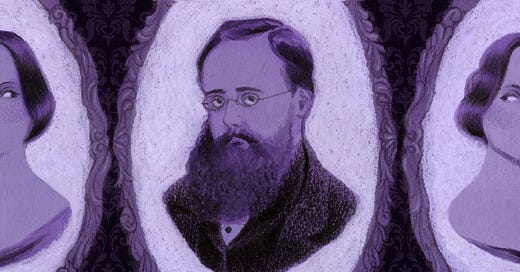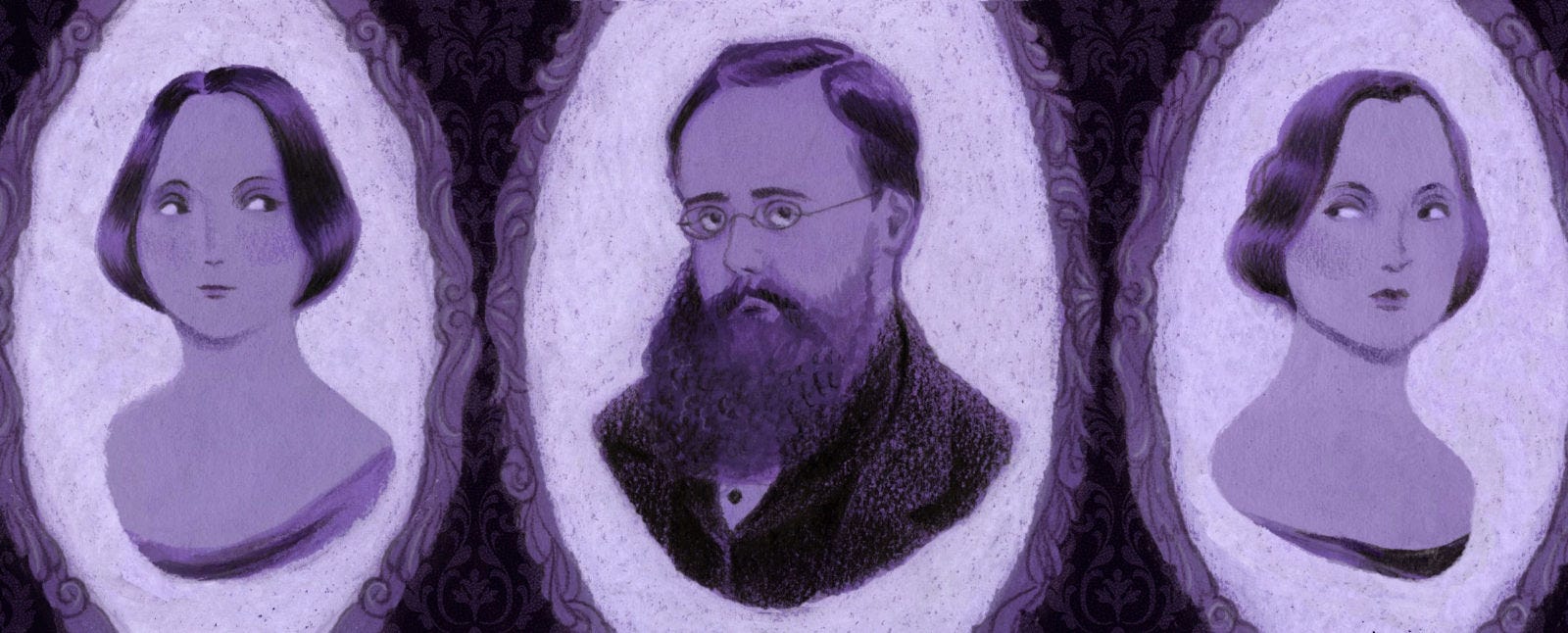This Novelist's Female Heroes and Brazen Polyamory Shocked Victorian England
Wilkie Collins, inventor of the mystery novel, startled polite society with attacks on the institution of marriage. But it was his own love life that really caused a stir.
On October 29, 1868, novelist Wilkie Collins sat in a pew at St. Marylebone Parish Church and watched Caroline Graves, the woman who had lived with him as his lover for over a decade, marry another man.
Her reasons for taking such a step are easy to guess. Collins had found a new woman: Martha Rudd, a barmaid 15 years Graves’s junior who had captivated him when he met her on a trip to Norfolk, England. Rudd was now in London, living in lodgings paid for by Collins, just a few minutes’ walk from the home he shared with Graves and her teenage daughter. But rather than trading Graves in for this younger model, Collins had hoped to keep them both.
For Graves, this decision threatened the fragile security she had gained as a famous author’s paramour. And it must have disillusioned her. With Collins, she saw, she would never be more than a mistress. As Graves walked down the aisle of the ornate, high-ceilinged neoclassical church, and said her vows to 29-year-o…
Keep reading with a 7-day free trial
Subscribe to Narratively to keep reading this post and get 7 days of free access to the full post archives.




